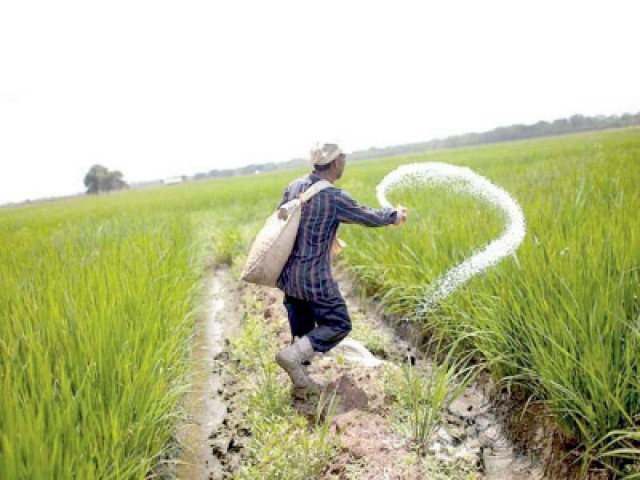Major initiatives taken to give a push to rural economy
Farmers say measures will not improve lives of stakeholders

The federal government has announced some key initiatives for the agriculture sector in the upcoming fiscal year 2023-24 as the sector has been hit hard by the devastating floods and needs immediate attention to turn things around for a better rural economy and ensuring food security.
The sector has posted a sluggish growth of 1.55% in the current fiscal year and incurred a loss of Rs800 billion ($3.725 billion) due to a heavy monsoon spell in 2022.
Among the major steps announced by Finance Minister Ishaq Dar during the budget session on Friday included the increase in allocation for the Kissan Package announced in 2022.
Dar believes that the Rs1,800 billion Kissan Package is bringing fruitful results for the rural economy and announced an increase in the allocation from Rs1,800 billion to Rs2,250 billion in the hope of further improving the crop yields.
It has also been proposed to set aside Rs30 billion for shifting 50,000 agricultural tube wells to solar energy so farmers may not have to operate their tube wells on diesel. Additionally, exemption from customs duty on raw materials/ inputs for rice mill machinery and exemption from customs duty on import of seeds for crop sowing have been announced to promote growth in the agriculture sector.
The government also gave exemption from sales tax on plant saplings, combined harvesters, dryers for agricultural products, no-till-direct seeder, planters, trans-planters, other planters and bovine semen.
For encouraging the export of commodities (agricultural produce, gems, metals, etc) through the online platform, a 1% concessionary final tax rate has been offered to the indirect exporters.
A five-year tax holiday has been given to the agro-based SMEs with annual turnover of Rs800 million. Similarly, Rs5 billion has been earmarked for giving concessionary loans to the agro-based industries to revolutionise the rural economy.
An amount of Rs10 billion has been allocated to provide mark-up subsidy for the PM’s Youth, Business and Agricultural Loan Scheme. A similar amount has also been set aside to provide low mark-up loans to the small-scale farmers.
For a smooth provision of fertiliser, a sum of Rs6 billion has been allocated as subsidy for the import of fertilisers.
Though the new measurers seem to be vibrant, some farmer lobbies believe these cannot serve the purpose of improving the lives of actual stakeholders, ie farmers.
“We welcome the exemption from taxes on machinery imports, but the government did not announce any concrete measures for reducing the cost of doing business,” remarked Pakistan Kissan Ittehad President Khalid Khokhar.
He said that fertiliser, pesticide, diesel and electricity prices were haunting the farmers and no step had been announced to create a level playing field for them.
“Currently, there are three prices of fertilisers in the market and DAP prices are touching an all-time high. Farmers are compelled to pay the current market prices for key inputs while the fertiliser subsidy is not meant for reduction in prices.”
The increase in Kissan Package funds is meant for agro-based industries and it will not provide any benefits to small farmers.
“We do not accept the finance minister’s claim that this package will improve the farmers’ lives,” Khokhar said. “Additionally, as per my knowledge, there was no tax on the import of seeds and I am wondering why the government has announced this measure.”
Published in The Express Tribune, June 10th, 2023.
Like Business on Facebook, follow @TribuneBiz on Twitter to stay informed and join in the conversation.


















COMMENTS
Comments are moderated and generally will be posted if they are on-topic and not abusive.
For more information, please see our Comments FAQ